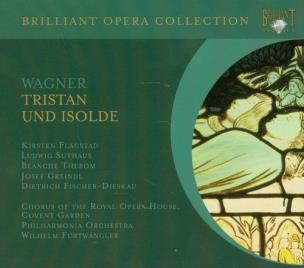- Regulamin
- Koszty dostawy
- Kontakt
- Dziś w ofercie 233 502 produkty
KSIĄŻKI
- Albumy
- Beletrystyka
- Biografie
- Dla dzieci i młodzieży
- Edukacja
- Ekonomia i biznes
- Ezoteryka
- Historia
- Informatyka
- Kalendarze
- Komiksy
- Kryminał i sensacja
- Kultura i sztuka
- Literatura faktu
- Literatura kobieca
- Literatura piękna
- Medycyna
- Nauka języków obcych
- Nauki humanistyczne
- Nauki przyrodnicze
- Nauki ścisłe
- Podręczniki
- Poradniki
- Prawo i administracja
- Przewodniki i podróże
- Psychologia
- Religia
- Sport
- Technika
- Zdrowie i uroda
ZABAWKI
- Artykuły dla niemowląt
- Bączki
- Bujaki i skoczki
- Ciągnij / pchaj
- Dla niemowlaka
- Grzechotki i gryzaki
- Karuzele i pozytywki
- Maty i centra zabaw
- Projektory i lampki
- Sortery i piramidki
- Zabawki
- Edukacyjne i kreatywne
- Figurki
- Klocki
- Lalki
- Pojazdy
- Pluszaki i maskotki
- Sport i rekreacja
- Zabawa w dom
- Zabawki drewniane
- Puzzle
- Do 200 elementów
- 201-500 elementów
- 501-1000 elementów
- Ponad 1000 elementów
- Puzzle 3D
ART. PAP
- Artykuły biurowe
- Artykuły piśmiennicze
- Bloczki i kartki samoprzylepne
- Dziurkacze
- Kalkulatory
- Nożyczki i nożyki
- Skoroszyty
- Teczki
- Wizytowniki
- Zszywacze
- Artykuły szkolne
- Akcesoria szkolne
- Modelowanie
- Notatniki i zeszyty
- Piórniki
- Plecaki i torby
- Pojemniki na śniadanie
- Pomoce naukowe
- Przybory matematyczne
- Przybory rysunkowe
- Upominki i gadżety
- Akcesoria do książek
- Artykuły balowe
- Breloki i zawieszki
- Drobiazgi, różności
- Kubki
- Oferta Świąteczna
- Papeteria, kartki i naklejki
- Skarpetki Many Mornings
- Upominki
GRY
MULTIMEDIA
- Audiobooki
- Beletrystyka
- Biografie i wspomnienia
- Dla dzieci i młodzieży
- Fantastyka
- Filozofia i religia
- Historia
- Literatura faktu i reportaż
- Poradniki
- Sensacja i kryminał
- Filmy DVD/BD
- Animowane
- Biograficzne
- Fantasy
- Horrory
- Komedie
- Romanse
- Science Fiction
- Sensacyjne / kino akcji
- Thrillery
- Muzyka CD
- Alternatywna
- Blues
- Dla dzieci
- Jazz
- Klasyczna
- Piosenka aktorska i poetycka
- Pop
- Rock
- Świąteczna i kolędy
- Akcesoria GSM
- Głośniki
- Kable i adaptery
- Klawiatury
- Myszy
- Słuchawki
PROMOCJE
ZDROWIE
LEGO

Wagner: Tristan und Isolde
Wydawca:
Brilliant Classics
ISBN:
5028421939339
EAN:
5028421939339
oprawa:
Plastikowa
format:
14.0x12.0cm
język:
angielski
Seria:
BRILLIANT OPERA COLLECTION
rok wydania:
2011
(0) Sprawdź recenzje
Opis produktu
Zasady bezpieczeństwa
One of the most influential and revolutionary works of the 19th century, Tristan und Isolde, Wagner's music drama of 1865, more than any other work shaped the course of music right up to the early years of the 20th century. The famous 'Tristan chord' that begins the work was claimed by some to be a new harmonic language.
Wagner was ever the musical magpie, and his mature style culminated from a close study of the music of Beethoven, Weber, Marschner, Spohr, Bellini, Mendelssohn and Liszt. This is not to underestimate the remarkable achievement that is Tristan und Isolde, and when placing it in the pantheon of compositions that changed the musical landscape, it ranks alongside the Eroica Symphony, The Rite of Spring, and Pierrot Lunaire. Tristan und Isolde is a love story set to some of the most erotic and passionate music ever composed.
This first recording made by EMI in 1952 for the new LP format and produced by the legendary Walter Legge was the first major recording to feature the young baritone, Dietrich Fischer-Dieskau. Conducting, Furtwängler excelled himself. Although there have been fine recordings since, this recording has been the benchmark for them all, and arguably has not been surpassed.
Further information
- 'Furtwängler's firm control and masterly conception of the score and his unfailing response to the subtleties of Wagner's writing are shown in page after page ... I have already praised the choice of Ludwig Suthaus for Tristan ... and Flagstad. It is moving beyond words to hear the great singer, with her art at the height of its maturity, as time bids her say farewell to Tristan.' Gramophone
- Booklet contains an introduction to the opera and a comprehensive synopsis of the plot
CENA:
46,55
zł
Cena detaliczna:
54,90 zł
15%
rabatu
Najniższa cena z ostatnich 30 dni: 46,55 zł
Produkt niedostępny
Uwaga!!!
Ten produkt jest zapowiedzią. Realizacja Twojego zamówienia ulegnie przez to wydłużeniu do czasu premiery tej pozycji. Czy chcesz dodać ten produkt do koszyka?


Wybierz wariant produktu
